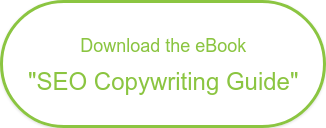SEO in the Age of AI
- Home
- SEO in the Age of AI
In the dynamic world of digital marketing, staying ahead of the curve is the key to success, particularly in the realm of Search Engine Optimization (SEO). SEO, the process of optimising a website to increase its visibility for relevant searches, has seen radical changes over the past decade. The constant updates to search engine algorithms—aimed at delivering the most accurate and relevant search results—require marketers to consistently adapt and innovate their SEO strategies.
Introduction: SEO in the Age of AI
- 1.1 The Ever-changing Landscape of SEO
- 1.2 The Rising Influence of AI in Digital Marketing
The New Era of SEO: A Focus on High-Quality Content
- 2.1 Why High-Quality Content Matters More Than Ever
- 2.2 Connection Between High-Quality Content, SEO, and Brand Awareness
Leveraging AI for SEO and Content Strategy
- 3.1 Recent AI Advances Impacting SEO
- 3.2 How AI Can Support Marketing Managers in the Tech Industry
Best Practices for Creating High-Quality, SEO-Optimized Content
- 4.1 Practical Steps for Creating Impactful Content
- 4.2 Utilizing AI Tools for Content Creation and Optimization
Success Stories: Demonstrating the Value of High-Quality SEO Content
- 5.1 Case Study: Achieving Marketing Goals with Quality Content and AI Strategies
- 5.2 The ROI of Investing in Quality SEO Content

Introduction: SEO in the Age of AI
1.1 The Ever-changing Landscape of SEO
As marketers, we know that staying on top of these changes can be challenging. In a tech-driven industry, trends come and go swiftly, algorithms change overnight, and yesterday’s cutting-edge strategy may be today’s obsolete practice. However, one thing remains constant in this ever-evolving landscape—the imperative for high-quality content. Search engines and users alike favor content that is original, relevant, and valuable. And that is where the real challenge lies: how to consistently produce high-quality content that not only aligns with the shifting SEO guidelines but also resonates with your target audience.
1.2 The Rising Influence of AI on Digital Marketing
Emerging technologies, particularly Artificial Intelligence (AI), have started to play a pivotal role in shaping the SEO industry. AI, with its various subsets like machine learning and natural language processing, is becoming increasingly integrated into search algorithms, digital marketing strategies, and even content creation.
Google, the most prominent search engine, has already begun leveraging AI to enhance its search results. With the introduction of AI-powered systems like RankBrain and BERT, Google has significantly improved its understanding of search queries and the relevance of content. These advancements in AI are transforming how search engines interpret and rank web pages, making it essential for marketers to understand and adapt to these changes.
AI’s impact extends beyond search algorithms—it's also revolutionizing the way we create, distribute, and optimize content. AI-powered tools can now help marketers analyze vast amounts of data, gain actionable insights, and automate time-consuming tasks. As a result, AI is enabling marketers to make more informed decisions, personalize content at scale, and ultimately, improve their marketing ROI.
As a Marketing Manager in the technology/software industry, you stand at the forefront of these developments. Understanding and harnessing the power of AI in SEO and content marketing can help you navigate the rapidly evolving digital landscape, meet your goals, and overcome the unique challenges you face. In this article, we will delve into the importance of high-quality content in today's SEO, explore the latest AI advancements impacting SEO, and share practical tips for leveraging AI to enhance your content strategy.

The New Era of SEO: A Focus on High-Quality Content
2.1 Why High-Quality Content Matters More Than Ever
As search engine algorithms become more sophisticated, they're increasingly prioritising high-quality content. But what exactly is high-quality content? It's content that is accurate, engaging, and most importantly, provides value to its intended audience. It's not just about using the right keywords; it's about delivering information that your audience finds useful and interesting.
High-quality content plays a pivotal role in determining your website's SEO performance. It helps in improving the organic ranking of your website, as search engines tend to favour content that users find helpful and relevant. This is in alignment with Google’s E-A-T (Expertise, Authoritativeness, and Trustworthiness) guidelines, which stress the importance of quality content coming from credible sources.
Furthermore, high-quality content encourages user engagement. When users find your content valuable, they spend more time on your website, share your content, and are more likely to return for more information. All these factors are crucial signals to search engines, indicating that your website provides quality content, and in turn, improves your SEO ranking.
2.2 Connection Between High-Quality Content, SEO, and Brand Awareness
The bond between high-quality content, SEO, and brand awareness is undeniable. Quality content that ranks high in search engine results can substantially increase your brand visibility. When your content appears on the first page of search results, more people are likely to engage with it, thereby enhancing your brand recognition.
Moreover, by consistently producing high-quality content, you establish your brand as an authority in your industry, which can strengthen your brand reputation and foster trust among your audience. For a marketing manager, this can be particularly helpful in demonstrating the value and ROI of marketing efforts to stakeholders.
Also, quality content provides numerous opportunities for internal and external linking, which not only boosts SEO but also improves the user experience by providing additional valuable information.
The next time you create a content strategy, remember this – producing high-quality content is not just an SEO best practice; it's an essential component for improving brand awareness and fostering a strong relationship with your audience. In the upcoming sections, we'll delve into the role of AI in boosting SEO and how it can aid in creating top-notch content that not only attracts but also captivates your audience.

Leveraging AI for SEO and Content Strategy
3.1 Recent AI Advances Impacting SEO
Artificial Intelligence (AI) has become a driving force in the SEO industry. The recent years have seen an influx of AI-powered tools and technologies that are reshaping the way we approach SEO and content strategy.
One significant AI advancement is the use of machine learning algorithms in search engines. For instance, Google's RankBrain uses machine learning to better understand the context and intent behind search queries, thereby enhancing the accuracy of search results. Similarly, Google's BERT (Bidirectional Encoder Representations from Transformers) uses Natural Language Processing (NLP) to comprehend the nuances of human language, allowing Google to understand search queries more like a human would.
Another notable AI advancement is the use of automation and AI-powered tools for SEO tasks. These tools can help with keyword research, content optimization, technical SEO audits, backlink analysis, and more, significantly reducing the time and effort required for these tasks.
3.2 How AI Can Support Marketing Managers in the Tech Industry
As a Marketing Manager in the tech industry, AI can be your ally in navigating the complex world of SEO and content marketing. By leveraging AI-powered tools and technologies, you can gain a competitive edge and address some of your key challenges.
For instance, AI can help you keep up with the rapidly evolving digital marketing landscape. Machine learning algorithms can analyze vast amounts of data and deliver insights about the latest trends, user behaviour, and the performance of your marketing campaigns, helping you make data-driven decisions and stay ahead of the curve.
AI can also assist in optimizing your marketing efforts and improving ROI. For example, AI-powered content analysis tools can help you understand what kind of content resonates with your audience, allowing you to create more targeted and effective content. Similarly, AI-powered SEO tools can automate time-consuming tasks like keyword research and technical audits, freeing up your time for more strategic activities.
Moreover, AI can support you in managing and optimizing multiple marketing channels. AI-powered marketing platforms can provide a unified view of your marketing efforts across different channels, enabling you to measure, analyze, and optimize your campaigns more efficiently.
In conclusion, AI is not just a technological advancement; it's a tool that can empower you to become a more effective and successful Marketing Manager. In the next section, we'll share some practical tips for creating high-quality, SEO-optimized content and leveraging AI in your content strategy.
Best Practices for Creating High-Quality, SEO-Optimized Content
4.1 Practical Steps for Creating Impactful Content
Creating high-quality, SEO-optimized content involves more than just writing; it requires a strategic approach that considers your audience's needs and the requirements of search engine algorithms. Here are some practical steps for creating impactful content:
1. Understand your audience: The first step in creating high-quality content is understanding your audience – their needs, interests, challenges, and the type of content they prefer. Use audience insights and analytics to guide your content creation process.
2. Conduct thorough keyword research: Keywords are fundamental to SEO. Use keyword research tools to find relevant keywords that your audience is searching for. Include these keywords in your content, but remember to maintain a natural tone – keyword stuffing can lead to penalties from search engines.
3. Provide valuable, original content: Your content should provide value to your audience. This could mean providing unique insights, actionable tips, in-depth analysis, or solutions to problems. Original, valuable content is more likely to engage your audience and improve your SEO ranking.
4. Maintain readability and structure: Ensure your content is easy to read and understand. Use headings, subheadings, bullet points, and short paragraphs to improve readability. A well-structured piece of content not only improves user experience but also makes it easier for search engines to understand your content.
5. Optimize for mobile: With the increasing use of mobile devices, it's critical to ensure your content is mobile-friendly. Mobile optimization is a key ranking factor for search engines.
4.2 Utilizing AI Tools for Content Creation and Optimization
AI can be a powerful ally in your content creation and optimization efforts. Here's how you can leverage AI tools:
1. AI-powered keyword research tools: AI tools can analyze vast amounts of data to provide accurate keyword suggestions, semantic analysis, and competitive analysis.
2. Content optimization tools: These tools can analyze your content and suggest improvements based on SEO best practices, readability, keyword usage, and more.
3. Content creation tools: There are AI tools that can generate content ideas, create outlines, or even write entire articles. While these tools can't replace human creativity, they can certainly assist in the content creation process.
4. Predictive analytics tools: AI can predict future trends, user behavior, and content performance, helping you create content that's likely to resonate with your audience and achieve your marketing goals.
Remember, while AI tools can be incredibly helpful, they're not a substitute for human insight, creativity, and judgment. Use these tools as aids, not replacements, in your content creation process. In the next section, we'll explore some success stories that demonstrate the value of high-quality SEO content and the impact of AI on marketing outcomes.

Success Stories: Demonstrating the Value of High-Quality SEO Content
5.1 Case Study: Achieving Marketing Goals with Quality Content and AI Strategies
One of the most compelling examples of the effective use of high-quality SEO content and AI strategies is from a leading software company in the tech industry. Facing challenges similar to those of our buyer persona, the company was looking to increase brand awareness, generate qualified leads, and improve its marketing ROI.
The company decided to revamp its content strategy, focusing on producing high-quality, SEO-optimized content that provided real value to its audience. It leveraged AI tools for keyword research, content optimization, and predictive analytics, helping to streamline the content creation process and make data-driven decisions.
The results were impressive. Over six months, the company's organic search traffic increased by 150%, leading to a significant increase in lead generation. The engagement metrics also improved, with an increase in the average time spent on the website and the number of pages visited per session.
Perhaps most importantly, by using high-quality content to establish itself as a thought leader in the industry, the company was able to enhance its brand reputation and trust among its audience. This case study demonstrates how quality content, coupled with AI strategies, can lead to significant marketing success.
5.2 The ROI of Investing in Quality SEO Content
Investing in quality SEO content can provide a substantial return on investment (ROI). In addition to improving your search engine rankings and driving organic traffic to your website, high-quality content can generate several other benefits that contribute to a positive ROI.
Firstly, quality content can lead to increased engagement from your audience, including higher click-through rates, more social shares, and more returning visitors. This engagement can directly contribute to achieving your marketing goals, such as lead generation or brand awareness.
Secondly, by positioning your brand as an authoritative source of information, high-quality content can enhance your brand reputation, foster trust with your audience, and lead to increased customer loyalty and retention.
Lastly, high-quality, SEO-optimized content is an investment that continues to pay off over time. Unlike paid advertising, which stops generating results as soon as you stop paying, SEO content can continue to attract organic traffic, generate leads, and produce results for months or even years after it's created.
By focusing on creating high-quality, SEO-optimized content and leveraging AI in your content strategy, you can overcome the challenges you face as a marketing manager and achieve your goals more effectively. These success stories serve as a testament to the power of quality SEO content and the potential of AI in revolutionizing the SEO industry.
Conclusion: Embracing High-Quality Content and AI for SEO Success
In today's rapidly evolving digital landscape, the role of high-quality, SEO-optimized content has never been more critical. It is the cornerstone of effective SEO strategy, helping businesses like yours increase brand visibility, engage with your audience, and drive organic traffic to your website.
However, creating impactful content is only part of the equation. To truly succeed, marketers must also embrace the game-changing potential of AI. By integrating AI strategies into your content and SEO efforts, you can automate laborious tasks, gain deeper insights, and enhance decision-making – ultimately achieving a more robust and efficient marketing strategy.
The future of SEO is here, and it's clear that it's powered by high-quality content and AI. By understanding this, you're already one step ahead in navigating the dynamic digital marketing landscape. It's time to leverage these powerful tools to not only meet your marketing goals but exceed them.
Here at Whitehat, we stand ready to support you in this journey. Together, let's create high-quality content that resonates, engages, and drives results. Let's harness the power of AI to optimize your strategies and maximize your marketing ROI. Let's lead your business to greater success in the SEO landscape of tomorrow.
Frequently Asked Questions
1. What makes content high-quality for SEO purposes?
High-quality content is original, engaging, provides value to the reader, and is relevant to your target audience. It should be well-researched, professionally written, and free from errors. Additionally, it should be optimised for SEO by incorporating relevant keywords, maintaining readability, and structuring in a way that makes it easy for search engines to understand.
2. How does AI impact SEO?
AI significantly impacts SEO by enhancing keyword research, automating content optimization, personalizing the user experience, and providing predictive analytics. AI tools can analyse vast amounts of data, providing deeper insights and more accurate predictions that can guide your SEO strategy.
3. Can AI replace human content creators?
While AI can assist in content creation by providing ideas, creating outlines, or even generating simple articles, it cannot fully replace human creativity and judgment. High-quality content requires a deep understanding of the target audience's needs, something that AI currently can't replicate.
4. What is the ROI of investing in high-quality SEO content?
The ROI of high-quality SEO content can be substantial. It improves your search engine rankings and drives organic traffic to your website. Additionally, it increases audience engagement, enhances your brand reputation, and fosters customer loyalty. SEO content continues to generate results over time, making it a valuable long-term investment.
5. How can a business effectively leverage AI for its SEO strategy?
A business can leverage AI in its SEO strategy by using AI-powered tools for keyword research, content optimization, and predictive analytics. These tools can help streamline the content creation process, improve SEO performance, and make data-driven decisions. However, it's important to remember that while AI tools can be incredibly helpful, they are not a substitute for human insight and creativity.


